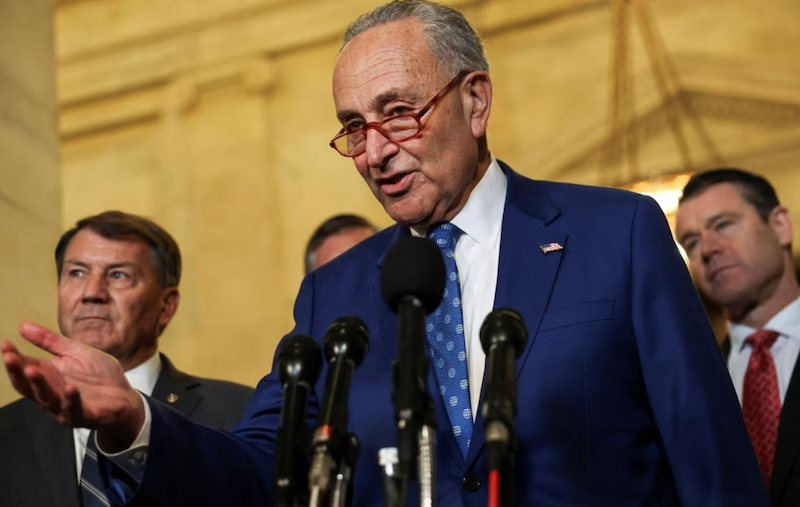US Senate Majority Leader Chuck Schumer, now in China ahead of a series of crunch meetings with Chinese counterparts amid rising tensions between the two superpowers, will be calling for fair treatment for US firms operating in the world’s No2 economy.
The official goal of the trip, which includes stops in South Korea and Japan, is to advance US economic and national security interests, but in China the bipartisan congressional delegation also hopes to meet Chinese President Xi Jinping with the two countries embroiled in an ever-escalating trade war.
After passing a sweeping bill last year to boost competition with China in semiconductors and other technology, Schumer and Democratic committee leaders said in May they would write legislation to limit the flow of technology to China, deter it from initiating a conflict with Taiwan and tighten rules to block US capital from going to Chinese companies.
Also on AF: Aussie Billionaire Could Block $4.3bn Takeover of Lithium Miner
Schumer “will focus on the need for reciprocity in China for US businesses that will level the playing field for American workers, as well as on maintaining US leadership in advanced technologies for national security”, his office said.
The trip follows visits by a series of high-level Biden administration officials, including Commerce Secretary Gina Raimondo in August.
The group of six senators, co-led by Republican Mike Crapo, will meet government and business leaders in the three countries they are visiting, and from US companies operating in the region.
Other senators on the trip include Republicans Bill Cassidy and John Kennedy and Democrats Maggie Hassan and Jon Ossoff. The group landed at Shanghai’s Pudong airport at 2pm.
China said it welcomes Schumer’s visit and hopes it will deepen the US Senate’s “objective” understanding of China and facilitate dialogue between the nations’ legislative agencies, China’s foreign ministry stated this week.
The Biden administration has placed curbs on chip exports to China, saying they aim to deny it access to advanced technology that could further military advancements or rights abuses. China hit back with accusations of economic coercion.
Raimondo said in August that US companies had complained to her that China has become “uninvestable”, pointing to fines, raids and other actions that made it risky to do business there. “For US business in many cases, patience is running thin, and it’s time for action,” she said.
- Reuters with additional editing by Sean O’Meara
Read more:
US Set to Close Loopholes in Curbs on Chips Tools For China
China Will Use Fake News to Sway Taiwan Vote: Security Chief
Alibaba’s Main Logistics Hub in Europe ‘Suspected Of Spying’
Capvision Vows to Defend China’s Security After ‘Rectification’
























